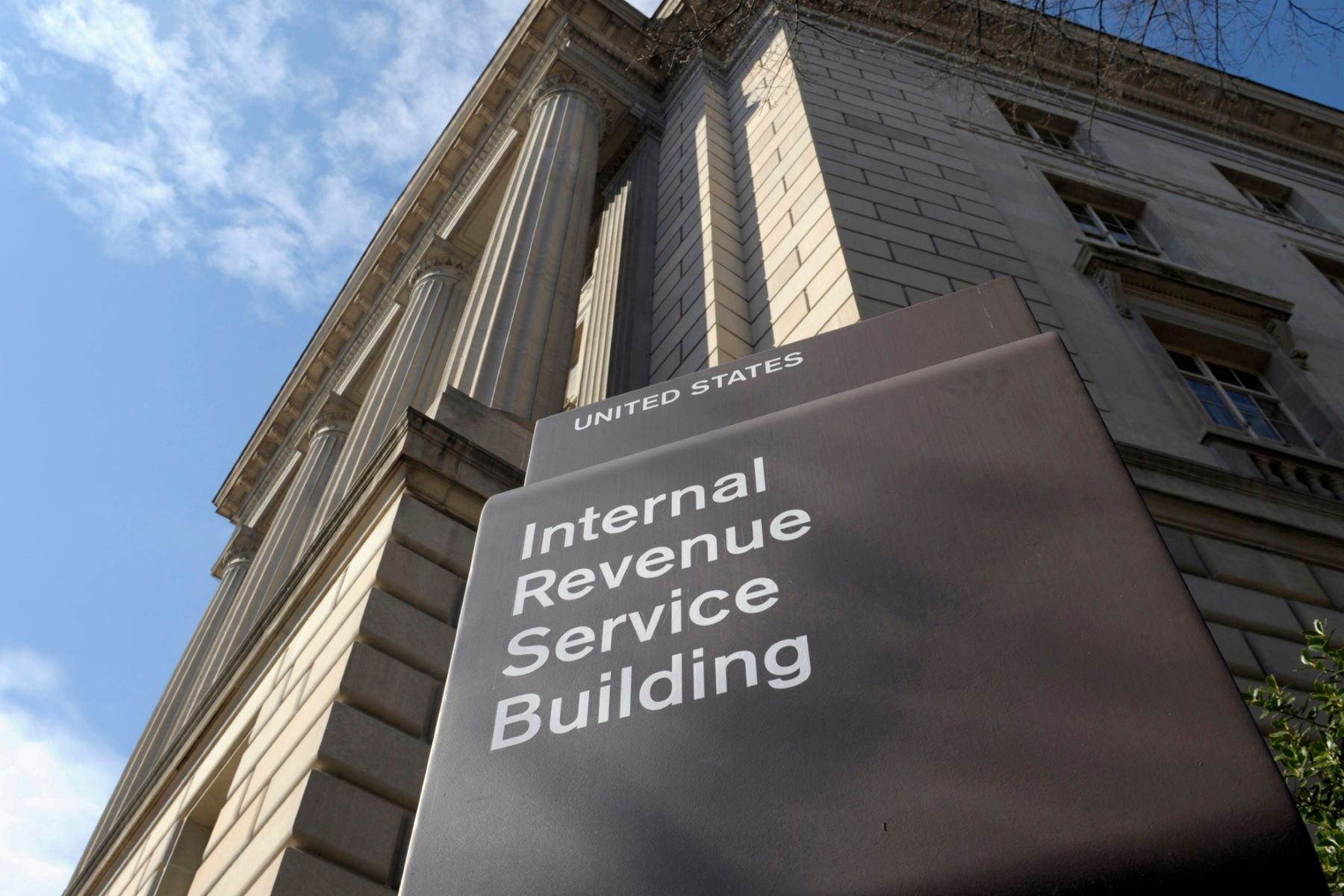

Finance
What Time Is Best To Call The IRS?
Published: October 31, 2023
Find out the optimal time to contact the IRS for finance-related queries. Ensure efficient communication and get the help you need.
(Many of the links in this article redirect to a specific reviewed product. Your purchase of these products through affiliate links helps to generate commission for LiveWell, at no extra cost. Learn more)
Table of Contents
Introduction
Dealing with the Internal Revenue Service (IRS) can be a daunting task, but sometimes it’s necessary to reach out to them for various reasons. Whether you have questions about your taxes, need help with a payment plan, or have concerns about an audit, knowing the best time to call the IRS can save you time and frustration.
The IRS is the United States’ tax collection agency, responsible for enforcing tax laws and providing assistance to taxpayers. As a governmental organization, the IRS has specific operating hours that you need to be aware of when trying to contact them. Understanding their hours of operation and considering other factors can help you determine the optimal time to get in touch with them.
In this article, we will explore the IRS operating hours, factors to consider when choosing the best time to call, and tips for effectively contacting the IRS. We will also discuss the common contact methods available to communicate with the IRS. By the end of this article, you’ll be equipped with the knowledge to navigate the IRS and make your contact experience as smooth as possible.
Keep in mind that while this article provides general guidelines, there may be exceptions or special circumstances that could affect the IRS’ availability. It’s always a good idea to check the official IRS website or call their toll-free telephone assistance line for the most up-to-date information regarding their hours of operation.
Understanding the IRS Operating Hours
The IRS has specific operating hours during which they are available to assist taxpayers. Generally, their hours of operation are Monday through Friday, from 7:00 a.m. to 7:00 p.m. local time. However, it’s important to note that these hours may vary during certain periods, such as tax filing season, when they extend their hours to accommodate the increased volume of inquiries.
During tax filing season, which typically runs from January to April, the IRS often extends their operating hours. This allows them to handle the surge of taxpayers seeking assistance with filing their taxes or addressing any issues that may arise. Extended hours can vary, and it’s advisable to check the IRS website or call their toll-free number for the most accurate information during this time.
It’s also crucial to understand the time zone difference when contacting the IRS. The IRS operates on local time, so if you are calling from a different time zone, you will need to adjust your call accordingly. For example, if you are on the East Coast and the IRS operates in Central Time, you might want to call earlier in the morning to ensure you reach them during their operating hours.
Additionally, it’s important to be aware of the IRS’ closure dates. The IRS is closed during weekends and federal holidays. They may also have occasional scheduled maintenance or system updates, which can impact their availability. Planning your contact with the IRS around these closure dates will help you avoid any frustration of reaching out when they are not open.
Understanding the IRS operating hours is crucial for determining the best time to make contact. By considering their hours, any potential extensions during tax season, time zone differences, and closure dates, you can strategically plan your communication to ensure you reach someone at the IRS during their available hours.
Factors to Consider When Choosing the Best Time to Call the IRS
When it comes to contacting the IRS, timing is everything. Consider the following factors when determining the best time to call:
- Time of Day: While the IRS operates from 7:00 a.m. to 7:00 p.m. local time, it’s generally recommended to call earlier in the morning. The lines tend to be less busy during the early hours, giving you a better chance of getting through more quickly. If you’re in a different time zone, take the time difference into account and adjust your call accordingly.
- Day of the Week: Mondays and Tuesdays tend to be busier at the IRS as taxpayers often have questions or issues that arose over the weekend. Wednesdays and Thursdays are typically less busy, so you might have a better chance of shorter wait times by choosing these days to call. Fridays can be hit or miss, as some taxpayers prefer to wrap up their tax-related matters before the weekend.
- Tax Season: Tax filing season, which typically runs from January to April, is the busiest time for the IRS. If possible, try to avoid calling during this period, as wait times can be longer due to the high volume of calls. If you do need to contact them during tax season, aim for early in the week or later in the day to potentially avoid peak calling times.
- Payment Deadlines: If you need assistance related to tax payment deadlines, it’s best to call well in advance of the due date. Waiting until the last minute may result in longer wait times. Planning ahead and contacting the IRS early will give you ample time to address any payment concerns and avoid any potential penalties.
- Federal Holidays: The IRS follows the federal holiday schedule, meaning they will be closed on these days. Avoid calling the IRS on federal holidays as their offices will be closed, and you will need to wait until they reopen to get assistance.
By considering these factors when choosing the best time to call the IRS, you can increase your chances of reaching a representative quickly and efficiently. Remember to be patient and prepared when calling, as wait times can still vary depending on the volume of callers and the complexity of inquiries during busy periods.
Tips for Effectively Contacting the IRS
When contacting the IRS, it’s important to be prepared and follow these tips to ensure a smooth and effective communication:
- Gather all necessary information: Before calling the IRS, gather all relevant documents and information related to your inquiry. This may include your Social Security number, tax return documents, and any correspondence you have received from the IRS. Having everything ready will help streamline the conversation and allow the representative to assist you more effectively.
- Use online resources: The IRS website provides a wealth of information and resources that can often answer common questions or provide guidance. Before picking up the phone, explore their website for helpful information, forms, and instructions. This can save you time and potentially resolve your inquiry without the need for a phone call.
- Be patient and persistent: Contacting the IRS can sometimes involve long wait times and multiple transfers. Be patient and prepared to wait on hold, as the representative may need to consult with other departments or gather additional information. If you get disconnected or transferred, don’t hesitate to call back and continue the conversation where you left off.
- Be clear and concise: When speaking with a representative, clearly explain your issue or question in a concise manner. Providing specific details and being organized in your explanation will help the representative understand your situation better and provide more accurate assistance.
- Take notes and ask for reference numbers: During your call, take notes of the representative’s name, extension, and any important information discussed. Also, ask for a reference number for your conversation. Having this information can be valuable if you need to follow up or refer back to the discussion later.
- Consider alternative methods of contact: In addition to phone calls, the IRS offers other contact methods such as online chat, email, and even social media channels. Depending on the nature of your inquiry, these alternative methods may be more convenient and efficient for addressing your questions or concerns.
Following these tips will help you navigate the process of contacting the IRS effectively. Remember to remain calm and respectful during your communication, as the representatives are there to assist you with your tax-related matters.
Common IRS Contact Methods
The IRS offers several contact methods to assist taxpayers with their inquiries. Here are some of the common ways to get in touch with the IRS:
- Phone Calls: The traditional method of contacting the IRS is through phone calls. You can reach the IRS by calling their toll-free telephone assistance line at [provide phone number]. Be prepared for potential wait times, especially during peak periods. It’s important to have the necessary information and be patient during the call.
- Online Chat: The IRS also provides an online chat service for taxpayers to receive assistance. This method allows for real-time communication with an IRS representative. Visit the IRS website and look for the chat option to connect with a live agent who can help answer your questions or provide guidance.
- Email: Another contact method is email. The IRS provides an email address where taxpayers can send their inquiries or concerns. However, be aware that response times may vary, and it’s important to avoid including sensitive or personal information in your email for security purposes.
- Written Correspondence: In some cases, you may prefer to send a written letter to the IRS. This could be for more complex issues or if you prefer to have a record of your correspondence. When sending a written letter, be sure to include your contact information, relevant documents, and a clear explanation of your question or concern.
- Social Media: The IRS has established a presence on various social media platforms, including Facebook, Twitter, and YouTube. While social media is not suitable for discussing confidential or sensitive matters, it can be a useful resource for general information, announcements, and updates from the IRS.
It’s important to note that different contact methods may have varying response times and availability. Phone calls and online chats generally provide more immediate assistance, while email and written correspondence may take longer to receive a response. Choose the method that best suits your needs and the urgency of your inquiry.
When contacting the IRS through any of these methods, make sure you have all the necessary information, such as your Social Security number and relevant tax documents, readily available. Being prepared will help streamline the conversation and ensure you receive accurate assistance.
Conclusion
Knowing the best time to call the IRS and understanding their operating hours is essential when you need to contact them for tax-related matters. By considering factors such as the time of day, day of the week, tax season, payment deadlines, and federal holidays, you can strategically plan your communication to maximize your chances of getting through to an IRS representative quickly.
Additionally, following tips for effectively contacting the IRS, such as gathering all necessary information, using online resources, being patient and persistent, being clear and concise in your communication, taking notes, and considering alternative contact methods, can help ensure a smooth and productive interaction with the IRS.
When reaching out to the IRS, it’s important to remember that their availability may vary due to exceptional circumstances or seasonal changes. Always stay informed by visiting the official IRS website or calling their toll-free telephone assistance line for the most up-to-date information on their operating hours and contact methods.
Dealing with the IRS can be a complex and time-consuming process, but by understanding the best times to call, being prepared, and utilizing the available contact methods, you can navigate through your tax-related inquiries more efficiently. Remember to remain patient, respectful, and proactive during your interactions with the IRS, as they are there to assist you with your tax-related concerns and ensure compliance with tax laws.
By following the guidelines and strategies discussed in this article, you can optimize your communication with the IRS, saving time and reducing frustration when dealing with your tax matters.














